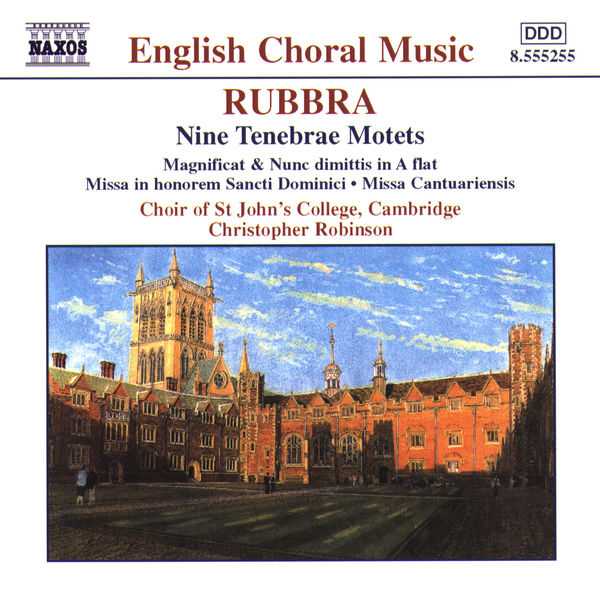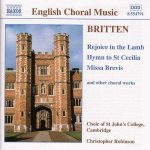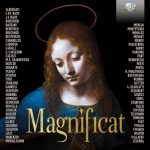
Composer: Charles Edmund Rubbra
Performer: Robert Houssart, Edward Lyon, Jonathan Bungard, Laurence Keegan-Fischer, Thomas Williams, St. John’s College Choir Cambridge
Conductor: Christopher Robinson
Format: FLAC (tracks)
Label: Naxos
Catalogue: 8555255
Release: 2001
Size: 260 MB
Recovery: +3%
Scan: yes
Magnificat & Nunc Dimittis in A-Flat Major, Op. 65
01. I. Magnificat
02. II. Nunc dimittis
Missa in honorem Sancti Dominici, Op. 66, ‘St. Dominic Mass’
03. Kyrie
04. Gloria
05. Credo
06. Sanctus
07. Benedictus
08. Agnus Dei
09. Prelude and Fugue on a Theme of Cyril Scott, Op. 69 (organ arr.)
Tenebrae Motets, Op. 72
First Nocturn
10. I. In monte Oliveti
11. II. Tristis est anima mea
12. III. Ecce vidimus eum
Second Nocturn
13. I. Amicus meus
14. II. Judas mercator pessimus
15. III. Unus ex discipulis
Third Nocturn
16. I. Eram quasi agnus innocens
17. II. Una hora non potuistis
18. III. Seniores populi
19. Meditation for Organ, Op. 79
Missa Cantuariensis, Op. 59 “Canterbury Mass”
20. Kyrie
21. Credo
22. Sanctus
23. Benedictus
24. Agnus Dei
25. Gloria in excelsis
Christopher Robinson and his St John’s College Choir prove especially eloquent, humane advocates of the eight-part Missa Cantuariensis. We’ve long needed a top-notch digital recording of this, the first of Rubbra’s five Mass settings. Robinson and company rise to the challenge admirably, not least in the exuberant concluding Gloria with its lung-burstingly high tessitura. We also get a thoroughly idiomatic rendering of the taut and imposing Magnificat and Nunc dimittis in A flat that Rubbra wrote two years later.
In the glorious Missa in honorem Sancti Dominici from 1949 (inspired by Rubbra’s own conversion to Roman Catholicism the previous year, on the feast day of St Dominic) our Cambridge group doesn’t quite match the sumptuous blend, miraculous unanimity or spine-tingling fervour displayed by James O’Donnell’s Westminster Cathedral Choir (to quote the composer: ‘…this is not austere music…red blood runs through its veins!’). On the other hand, these newcomers sound wholly captivated by the nine motets that make up the remarkable Op-72 Tenebrae. Boasting an infinitely subtle harmonic and contrapuntal resource, these timeless, wonderfully compassionate settings of the responsories used during Matins on Maundy Thursday show Rubbra very much at the height of his powers, encompassing an extraordinarily wide dramatic and expressive range. Robinson also gives us two instrumental bonuses in the rapt Meditation for organ, Op 79, and Bernard Rose’s transcription of the more substantial Prelude and Fugue on aTheme of Cyril Scott (originally written for piano in 1950 to celebrate Scott’s 70th birthday).
Throw in Naxos’s praiseworthy production, and you’ve a bargain of the first order.



